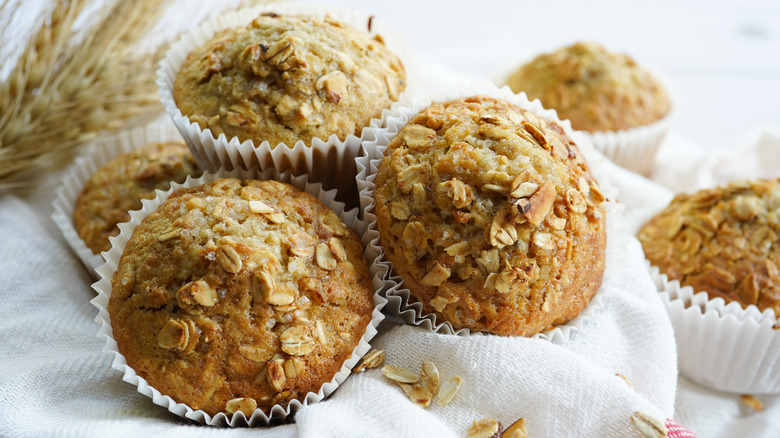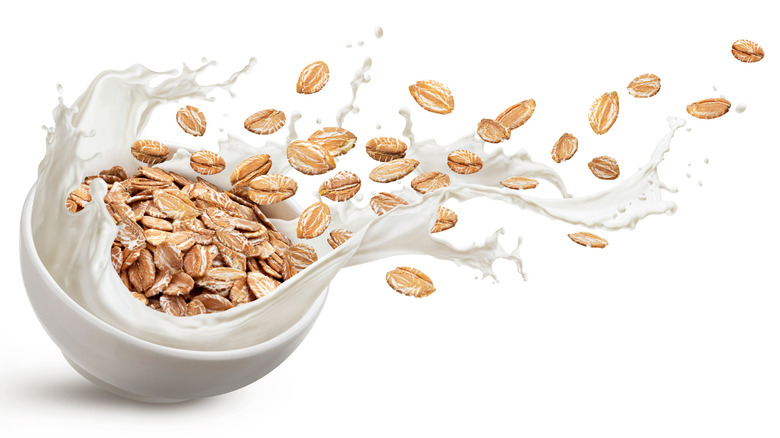The Extra Step You Need For Moist Oatmeal Muffins
Mark your calendars for December 19! That's National Oatmeal Muffin Day, according to National Days Today. This mini-holiday celebrates the healthiness and tastiness of a breakfast food adored by many. Most muffins use baking powder, flour, and sugar, but oatmeal can replace or supplement flour in some recipes. The result is, of course, oatmeal muffins. These filling treats originated in the U.S., when Americans experimented with different oats in order to adhere to healthier diets. Indeed, oatmeal muffins are generally lower in calories than your standard muffin. This depends on the recipe, though, as anything from fruits and nuts to cheese and chocolate are frequently added to oatmeal muffin recipes.
What exactly is oatmeal, though? It may seem obvious to some. After all, 80% of U.S. household pantries include oatmeal, per Wonderopolis. For the other 20% or anybody who's never stopped to wonder what they're eating: Oatmeal is simply grains of the oat plant after they've been hulled, then milled, rolled, or steel-cut. Oats may have been cultivated in the Near East as far back as tens of thousands of years ago (via Washington Post) or in China about 9,000 years ago (per Wonderopolis), but it was the ancient Greeks who originally ate the not-so-modern version of oatmeal.
It was a stroke of genius to add oats to muffins a millennium later, but there's one problem that this process often encounters: Oats can really dry out your muffins.
Soak oats with milk
Dehydrated oats can end up chewy and tough once baked, and they can make the texture of muffins less than mouthwatering, as explained by Kitchn. Oats possess indigestible carbohydrates known as beta-glucans, according to the Washington Post. These carbs are absorbent and easily hold onto the water they take in, making them responsible for any unintended dryness in oatmeal muffins; They steal moisture from the body of the muffin. Worry not, though, for there is a simple and easy way to keep your muffins moist, even when baking with oats. It merely takes some extra time upfront (perhaps while your oven is preheating).
As recommended by Kitchn, bakers should soak their oats in milk for roughly 20 minutes before mixing them into the batter. The result of this straightforward technique is softer and more tender oats. Saturated oats naturally soak up less moisture from the rest of the muffin while it bakes, too. Vintage Kitchen echoes this advice, explaining that mixing oats and milk then letting them stand will result in creamy-textured muffins with chewy oats. Kitchn specifically recommends rolled oats, since they'll absorb the milk particularly quickly.
So, as people often like to say, go soak your wild oats!

